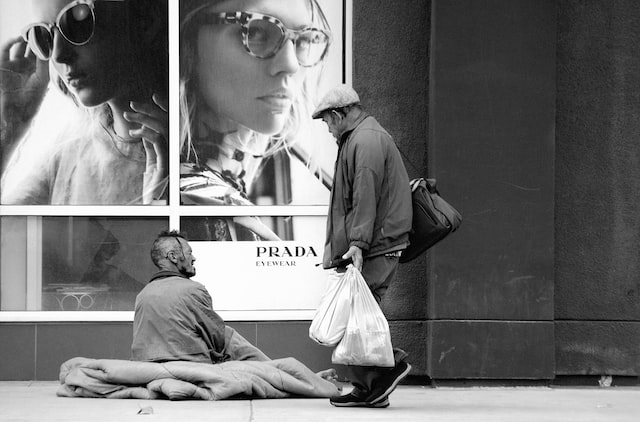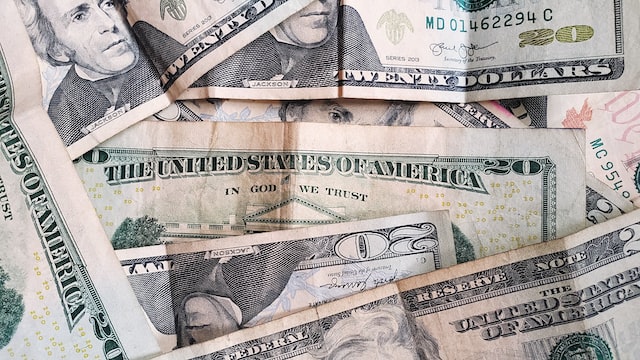Human trafficking has become a profitable business over the past decades. The reason for this does not only point to criminal gangs, which are now professionally organized. The fault, as it happens so often, is in the system, meaning our economic system. Also known as capitalism, our system today not only tolerates human trafficking, but encourages it along with other despicable practices solely for the accumulation of capital.

SOBERING STATISTICS
Human trafficking is on the rise. Contrary to the assumption that slavery was abolished long ago. Also, contrary to the assumption that general prosperity is growing. Last but not least, contrary to the assumption that effective measures are being taken in the fight against organized crime. How can this be? On the one hand, the media regularly report on our much-cited “human progress.” Our democracies, based on human rights and functioning state bodies, are not without flaws, but they are seen as a grantor of human freedom and dignity. And yet in recent years, human trafficking in Europe has increased significantly. It is alarming that the number of unreported cases is still high.
THE ROLE OF THE ECONOMY

Why are there more and more victims of human trafficking? Humans are complex beings in their own right. To examine the relationship between thousands, hundreds of thousands or even millions of people, i.e. entire societies and their characteristics, is immensely more complex. There is no one reason for the unfortunately increasing number of victims in this area. But one can try to understand the current phenomena that have great influence and power over the behavior of people. One phenomenon that gained momentum with the Industrial Revolution and continues to this day is capitalism.
Making more money out of money has become a creed, an idea without an alternative, for the sake of which, as can be seen, human rights are also left by the wayside. In an economic system in which the overriding principle is the increase of capital, values such as solidarity, tolerance, closeness to nature, or fraternity are secondary. In the worst case, they are instrumentalized to make profit – see green washing and similar practices.
ORGANIZED CRIME
Sociologist Jean Ziegler writes in his book “The Barbarians Are Coming: Capitalism and Organized Crime” that a criminal cartel initially functions like a capitalistic-type economic organization: profit maximization comes first, and it is vertically controlled and focused on production. In addition, violence and special social hierarchies are characteristics of said cartels that other economic organizations such as “legally” operating companies do not have. But when it comes to participating in the free market, criminal gangs again act in a surprisingly similar way to the rest of the economy. They profit from the globalization and liberalization of markets, which enables, for example, drug and arms smuggling as well as human trafficking. Likewise, said organizations take advantage of social misery and wage dumping to extract as much as possible for themselves. In the BR documentary “Exploitation in Agriculture: The Price of Cheap Vegetables” it is shown how mainly people from Africa move to Spain and Italy to work in agriculture for starvation wages and catastrophic living conditions. In the process, criminal and illegal practices are used – especially in Italy by the Mafia – to grow vegetables that are sold cheaply in domestic supermarkets.
CAMUS AND SOLIDARITY
It would be foolish to think that a global phenomenon like human trafficking can be solved with more intelligence gathering, stricter laws, harsher penalties, or other singular measures. As has been alluded to, one of the main reasons human trafficking occurs is the greed for profit. This is because illegal and inhumane methods of making money, while obviously condemnable, are often lucrative and lead to wealth more quickly than making money legally. These illegal methods, in turn, spread because the ideology of capitalism is one of the cornerstones, if not the cornerstone, of our society, which in turn eclipses other values such as solidarity and community as such. Without values, it is easier to act in a morally questionable way, although it must be added that many people are exposed to criminal networks for reasons that are not by choice. They often have no other choice due to poverty or are born into criminal milieus, in which a different form of socialization takes place. The French philosopher Albert Camus, coming from humble beginnings himself, therefore pleaded for solidarity and the “revolt” against the absurd. The absurd is the search for meaning in a world without meaning, because where is it to be found? Nowhere, neither on melting glaciers, nor in crowded shopping malls, nor in everyday, monotonous work. But even if there is none, it is precisely the rebellion against this senselessness, the not being satisfied with the state of the world, that is a task that can fill us with passion, and to which humanity can dedicate itself toward together instead of against each other. And only in this way, together, can an end be put to human trafficking.
Translated by Emily Schiffer
#HumanTrafficking #Capitalism #Camus #Ziegler #Europe #Crime #AgainstHumanTrafficking #Gegenmenschenhandel #EndExploitation #EndTrafficking #HopeForTheFuture #Austria
